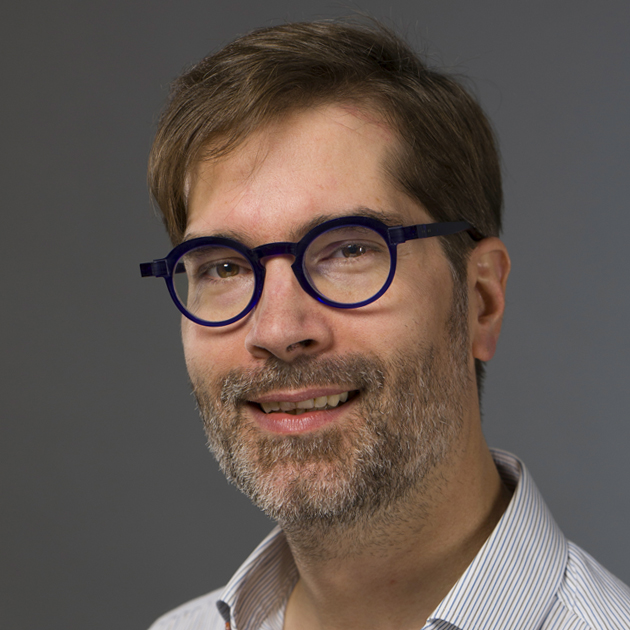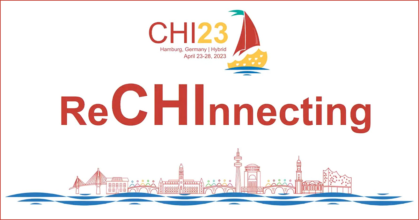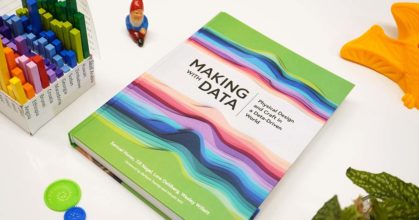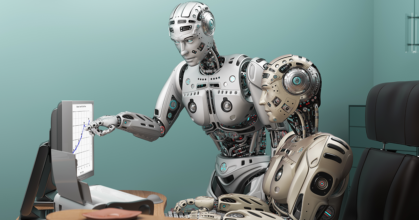Site web personnelPersonal Web Site
Équipe de recherche :Research Team:
Design, Interaction, Visualization & Applications (DIVA)Design, Interaction, Visualization & Applications (DIVA)
Laboratoire :Laboratory:
Laboratoire Traitement et Communication de l'Information (LTCI)Information Processing and Communication Laboratory (LTCI)
Département :Department:
Informatique et Réseaux (Infres)Computer Sciences and Networks (Infres)
I’m an associate professor in the Design, Interaction, Visualisation & Applications (DIVA) research group at Télécom Paris.
The computer is a tool for people to interact with the modern, digital world. It is the medium through which we interact with, understand, and communicate data. It is how we explore and create digital artifacts. It is how we communicate with colleagues and loved ones.
My research focuses on making the computer as a tool more expressive for humans. My approach generally blends qualitative methods for understanding human needs with the implementation and evaluation of prototype tools.
Making software more malleable
Software is not soft. A user cannot adapt an existing tool that almost satisfies their needs into one that does. My work on Cracking the Cocoa Nut explores how to adapt existing environments so that programmers can inspect, make sense of, and adapt existing software tools. It serves as a foundation to build tools that can let users adapt and recompose their own personal interfaces from existing applications. Webstrates breaks from the constraints of traditional applications and documents to propose sharable dynamic media, built on the concepts of shareability, collaboration, and malleability.
Information Visualization
One of the most frequent uses of digital tools is help people manage and harness vast amounts of data. My work in information visualization focuses on understanding how people make sense of data and providing them with better tools to derive insight from data. With colleagues, we have studied the kinds of low-level analytic tasks that people perform when exploring data or how data workers think about and manage uncertainty.
Tools such as Tarantula (Eagan et al., InfoVis ’01 [pdf]) leverage human perception and code instrumentation to help developers find bugs faster, even in an unfamiliar code base. This work went on to be awarded the ACM SIGSOFT 2015 Impact Award. SchemeLens uses semantic fisheye zooming to help users navigate and understand large, complex technical schematics even on small, tablet-sized displays.
Increasing the expressiveness of tools
Whereas modern application design focuses on making software easy for a novice user to understand, expert users master and appropriate their tools. Augmented Letters help users more easily learn and perform command shortcuts on touchscreens which still allowing for novice gesture interactions. Work on WatchIt aims to enrich interaction with small-screen watches by moving interactions off the screen and onto the wristband.
Recruiting
I am always looking for strong, motivated Ph.D. students, post-docs, and Master’s students to work with. If you’re interested in conducting high-quality research in one of these themes (or close), please contact me.
Teaching is the raison d’être of academia and is one of the most important reasons that I am here at Télécom Paris. Teaching inspires research, and research helps keep teaching current.
I have the opportunity to teach several classes here and elsewhere, in both French and English.
- HCI 909: Advanced Programming of Interactive Systems
- CES: Data Scientist: Visualisation des données
- IGR 204: Visualization
- INF 203: Web Technologies
- IGR 201: Développement d’applications mobiles
- IGR 203: Interaction Homme-Machine
- INF 103: Programmation Orientée-Objet (Java)
- INF 203: Technologies Web
- UE IHM ANDROÏDE: Conception Centrée-Utilisateur
If you are a student in one of my classes and have questions, please don’t hesitate to contact me at james.eagantelecom-parisfr or to schedule an appointment. My office is 4.D24.

CHI 2023 Conference Highlights
Design interaction perception, Faculty Members — 22/05/2023The 2023 CHI (pronounced Kaï) conference on Computer and Human Interaction welcomed researchers from around the world in [...]
Human-Computer Interaction: our works awarded at CHI'2023
Design interaction perception, Faculty Members — 05/04/2023Works from Télécom Paris faculty are about to be awarded at CHI 2023, ACM CHI Conference on [...]
MS big data : forte demande des entreprises (Le Figaro Étudiant)
Post Master's degrees, Data Science & AI — 16/03/2022Télécom Paris en est à la 9e édition de son MS Big Data Gestion et analyse des données [...]
Une IA explicable : flexibilité et spécificité du contexte
Digital Trust, Data Science & AI, Faculty Members — 23/04/2020L'initiative Operational AI Ethics de Télécom Paris vient de publier son premier [...]
Flexible and Context-Specific AI Explainability: A Multidisciplinary Approach
Digital Trust, Data Science & AI — 23/04/2020Telecom Paris' Operational AI Ethics initiative has just published its first report [...]




